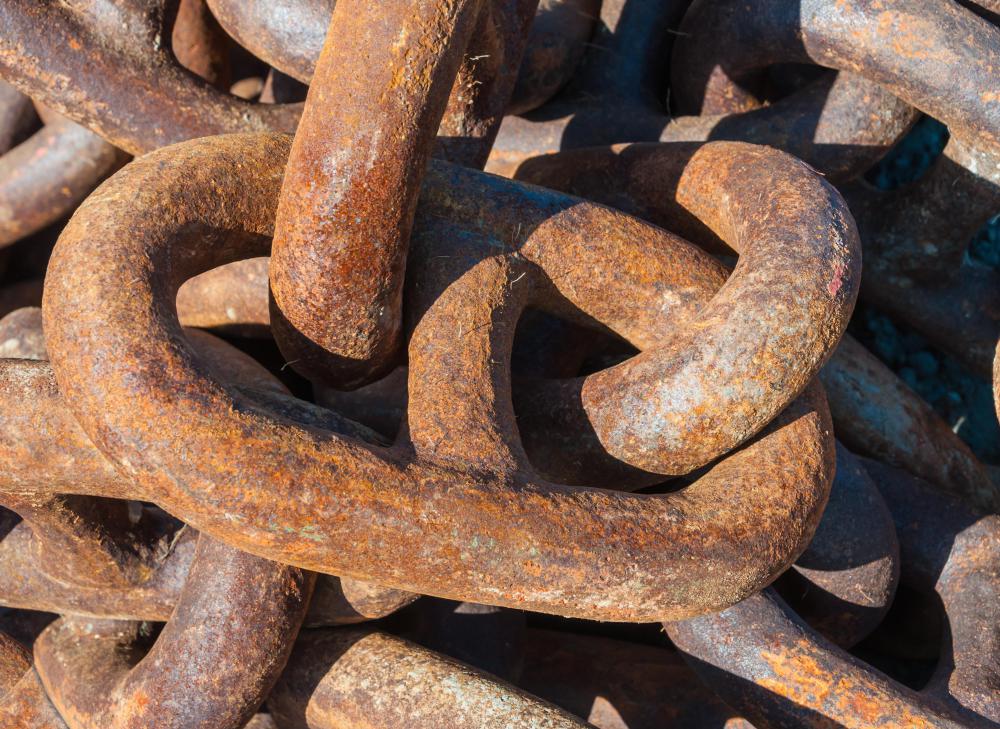At PracticalAdultInsights, we're committed to delivering accurate, trustworthy information. Our expert-authored content is rigorously fact-checked and sourced from credible authorities. Discover how we uphold the highest standards in providing you with reliable knowledge.
What Does a Corrosion Engineer Do?
A corrosion engineer is a trained professional who is primarily responsible for analyzing engineered materials and coming up with strategies for slowing or halting the effects of corrosion. Corrosion is essentially the breakdown of engineered materials, through such methods as rust or oxidation. A corrosion engineer must learn about different types of corrosion and come up with plans for preventing long-term damage to components. Such an engineer is likely to be hired in manufacturing settings, construction settings, or any other setting in which corrosion poses a risk to machinery or components.
Part of the job of the corrosion engineer may be developing new products using synthetic or hybrid materials. Such research and development will provide an influx of products to the market that will be more cost-effective for certain businesses looking to reduce replacement or repair costs due to corrosion of metal components. The corrosion engineer may also develop new strategies for repairing materials or treating them to resist certain types of corrosion. The engineer may work in a lab or onsite, analyzing materials and the effects of certain chemicals or elements on those materials.

The oil industry is one of the most common industries in which a corrosion engineer will work, especially on off-shore drilling rigs. The salt from seawater, coupled with moisture in the air and in the sea, can wreak havoc on metal components used during the drilling process. The corrosion engineer may be hired to monitor corrosion on vital components, make recommendations for slowing the corrosion process, or making recommendations for parts replacement. The engineer may also be tasked with developing new materials that will better resist corrosion without sacrificing strength or efficiency.
In order to become a corrosion engineer, a person needs to first graduate from high school or earn an equivalent qualification. He or she will then need to enroll in a college program for chemical or mechanical engineering. During this time, it is advisable for the candidate to take an internship that will allow him or her to gain work experience in the engineering field. After graduation, the job candidate has two general options: enroll in a master's degree program that will focus more specifically on corrosion engineering, or participate in job training that an employer may offer in the field of corrosion engineering. The candidate may end up in an apprenticeship that will give him or her the foundation for being successful in the field.
AS FEATURED ON:
AS FEATURED ON:











Discuss this Article
Post your comments